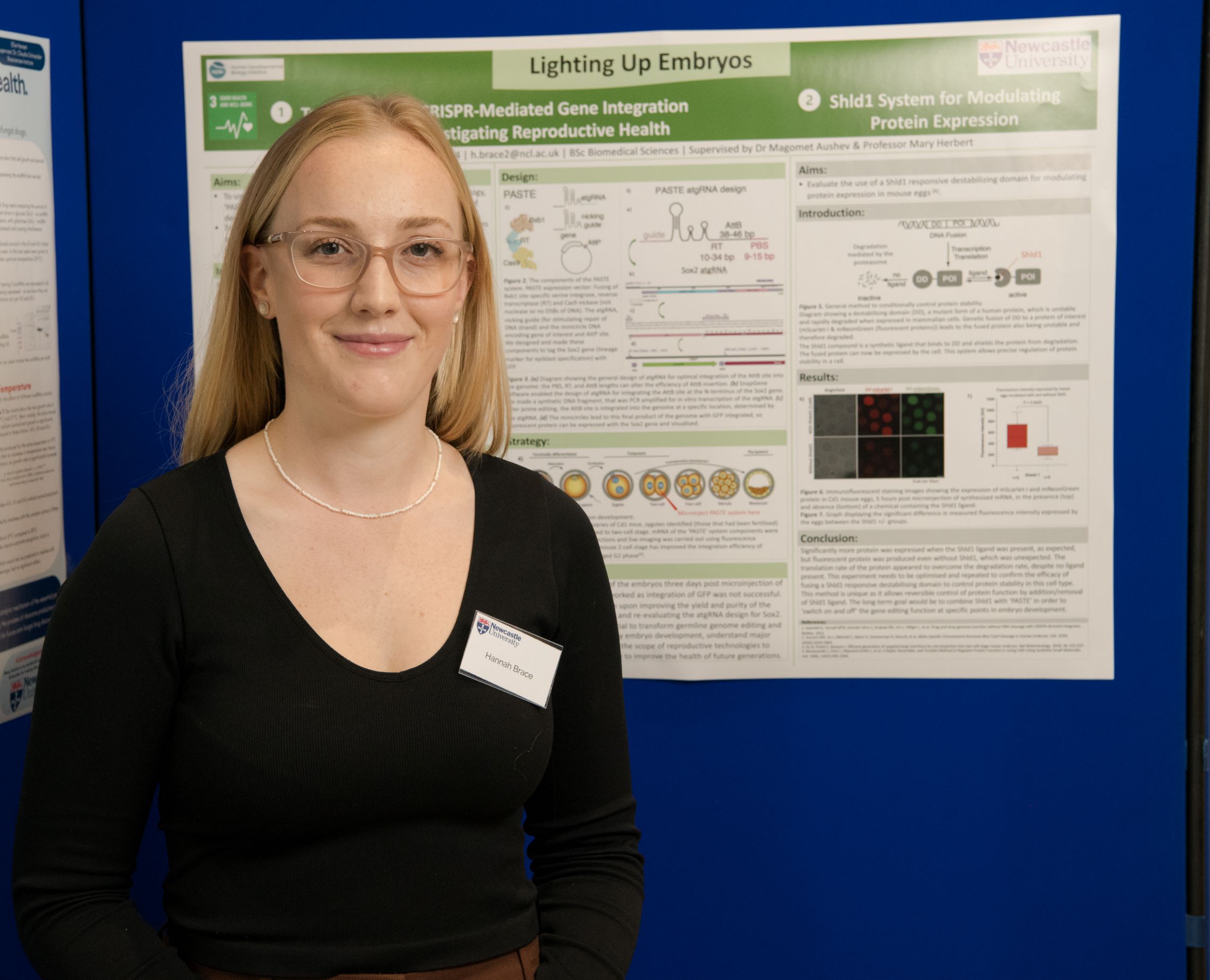2022 Participants
 Hannah Brace
Hannah Brace
- BSc (Hons) Biochemistry
- Optimising CRISPR Mediated Integration for Investigating Reproductive Health
Fertilisation of an egg cell by a sperm cell is required for human development, to ensure a healthy population thrives on our planet. Infertility rates are rising, hence so is the use of assisted reproductive technologies (e.g. IVF), yet we know so little about the fundamental cellular processes that occur during preimplantation development. Advances in imaging equipment and computational tools have made live imaging of cells and embryos possible. My project aimed to generate reporter embryos using CRISPR-mediated integration of fluorescent proteins. I implemented a novel genome editing tool, ‘PASTE’, into mammalian zygote stage embryos, to fluorescently tag and visualise the Sox2 gene. Unfortunately, integration was not successful. However, this technique has the potential to transform germline genome editing, due to its double strand break-independent approach. I also tested a strategy that regulates protein stability in mouse eggs, by genetically fusing a Shld-1 responsive destabilizing domain to a fluorescent protein. Research of this kind aims to improve our understanding of mammalian development, to further assess fertility treatments and prevent transmission of disease.
Funding source: Newcastle University
Project supervisor: Professor Mary Herbert
